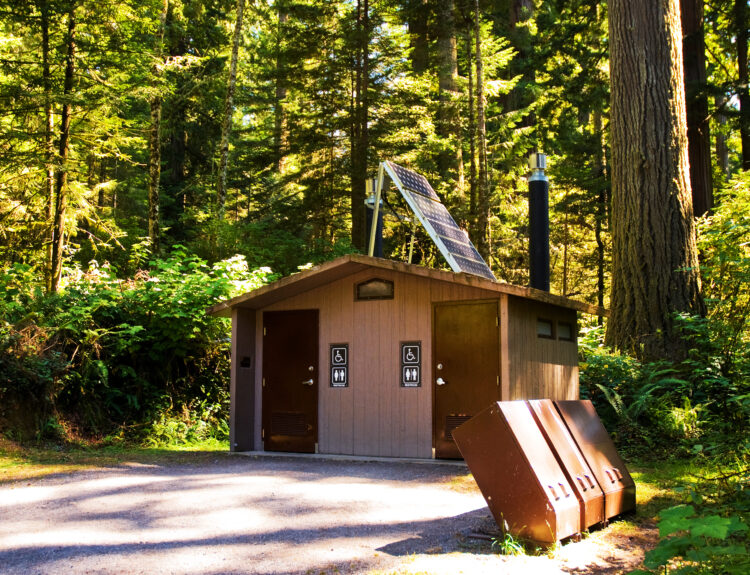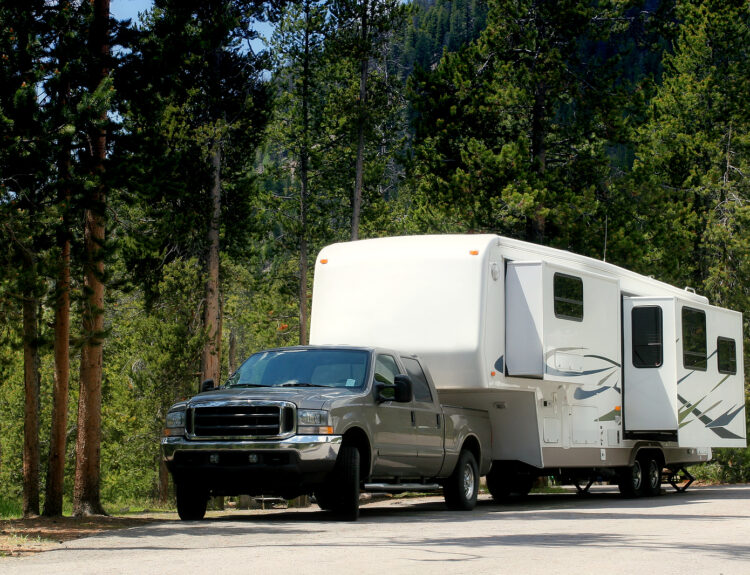Investing in an RV park can be a lucrative venture, but it’s essential to understand the various factors that influence the purchase price. Understanding the costs associated with purchasing an RV park is crucial for making informed decisions and ensuring a profitable venture. This article delves into the average costs associated with buying an RV park in the United States, providing a comprehensive guide for prospective investors.
Key Takeaways:
- Initial costs for purchasing an RV park vary widely based on location, size, and existing infrastructure.
- Development expenses include site preparation, utility installations, and building essential facilities.
- Ongoing operational costs encompass staffing, maintenance, marketing, insurance, and taxes.
- Factors such as location, available amenities, and market demand significantly influence profitability.
- Thorough due diligence and strategic planning are crucial for a successful investment in the RV park industry.
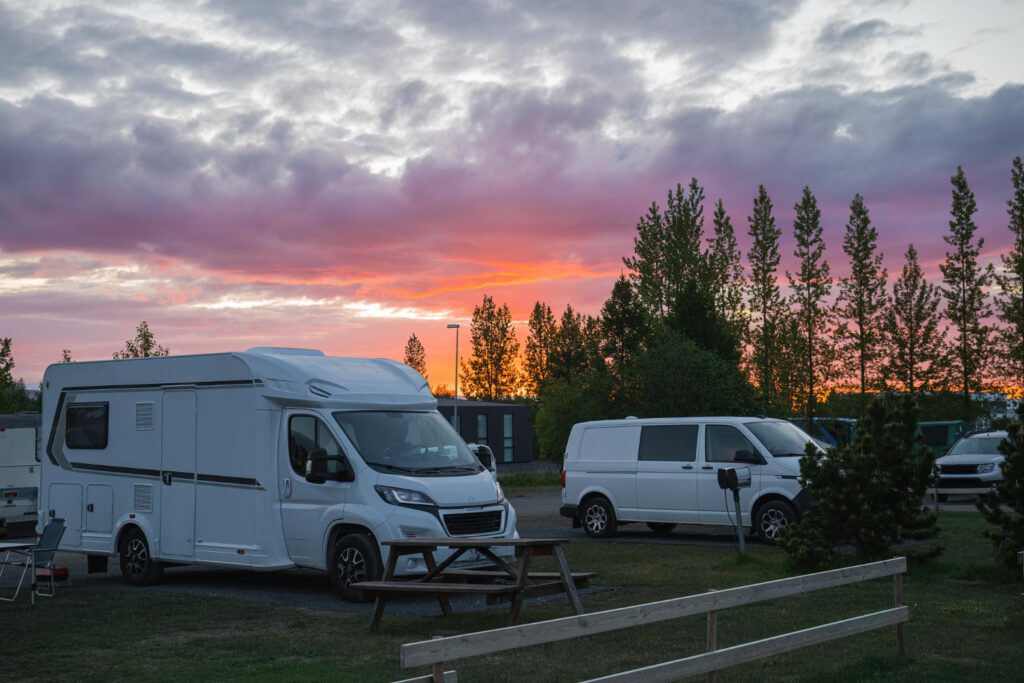
How Much Does It Cost to Buy an RV Park?
The cost of buying an RV park varies significantly depending on factors such as size, location, and amenities. Smaller parks with limited facilities may cost as little as $500,000, while larger, high-end resorts with full amenities and established revenue streams can exceed $5 million. In high-demand tourist destinations, prices may rise even further due to the park’s earning potential.
Before diving into numbers, it’s important to understand what drives these price differences. Key variables like land value, infrastructure quality, and occupancy rates all play a role in shaping the final purchase price.
Average Purchase Price Based on Size and Location
Location is one of the most influential factors in determining the cost of buying an RV park. Parks near a national park, beaches, or major travel routes command higher prices due to increased visitor demand. Parks in warmer climates that can operate year-round—such as Florida, Texas, or Arizona—tend to be valued higher than those in northern states where operations may pause during winter months. The ability to generate revenue 12 months a year has a significant impact on market value.
We also need to consider two different variables here: park size and park features. Small RV parks typically have 10–25 sites and cater to fewer guests with basic amenities. Medium-sized parks usually include 50–100 sites and may offer more services such as laundry, WiFi, and recreational spaces. Large parks or resorts often exceed 100 sites and include luxury features like pools, clubhouses, and entertainment areas. Full hookups, premium facilities, and high-end amenities can increase purchase prices significantly—even more so when these features are already well-maintained and revenue-generating. The average cost would be something like:
- Small RV parks (10–25 sites): Around $500,000
- Mid-sized parks (50–100 sites): $1–$3 million
- Large RV resorts (100+ sites with luxury amenities): $5 million or more
Factors That Affect the Cost of an RV Park
While purchase price is a key consideration, several factors influence the overall cost of acquiring an RV park. Land value plays a major role, as parks in high-demand locations naturally come at a premium. The number of the RV site also impacts cost—more sites typically mean higher revenue potential but also require more maintenance and infrastructure:
Land Value and Site Count
High-demand areas drive up land value, which directly increases the park’s purchase price. The number of usable RV sites impacts both the upfront cost and income potential. As a benchmark, land suitable for RV park development can range from $2 to $15 per square foot depending on location, zoning, and infrastructure access. Coastal areas and metro-adjacent regions tend to be on the higher end.

Infrastructure and Amenities
Parks with robust infrastructure and modern amenities command higher prices. For example:
- Full hookups (electric, water, sewer): $10,000–$15,000 per site
- Swimming pool: $100,000–$250,000 depending on size and quality
- Laundry facilities and bathhouses: $50,000–$100,000
- Fiber-optic WiFi systems: $15,000–$30,000
- Solar energy systems: $20,000–$75,000 depending on park size
- Clubhouse or event space: $200,000–$500,000
These features not only increase the value of the property but also enhance the park’s appeal and potential daily rates for the RV owner.
Revenue and Profitability History
The revenue history of an RV park is a separate but equally critical factor. Buyers should request financial statements, occupancy reports, and tax filings from the last three years. A park with strong historical performance, consistent occupancy rates, and upward-trending income data is more likely to deliver reliable cash flow. These parks often come at a premium but present less risk and a shorter path to ROI.
Additional Costs Beyond the Purchase Price
When calculating the cost of buying an RV park, buyers must look beyond the purchase price. Several additional costs can impact your investment.
Inheriting Existing Debts or Liabilities
Before finalizing a purchase, it’s essential to determine whether the RV park has outstanding debts, unpaid taxes, or liens. Inheriting unresolved financial obligations can put a major dent in your operating budget. Always include a thorough financial audit and legal review in your due diligence process to avoid surprises. Request a certified balance sheet and ask for a lien search to ensure no hidden liabilities.
Upfront and Renovation Costs
Renovations are often necessary, especially if the park has aging systems. Common expenses include:
- Electrical and sewage upgrades
- Road resurfacing
- Adding or improving recreational areas
The potential RV park owner should also budget for legal and due diligence fees, including inspections, title searches, and environmental assessments. As a rule of thumb:
- Renovations: 10–20% of the purchase price
- Legal and inspections: $15,000–$30,000
- Environmental studies: $3,000–$10,000
These costs ensure you start on a compliant and modernized foundation.
Ongoing Operational Expenses
Operating an RV park comes with monthly and annual costs:
- Utilities: Water, electricity, sewage, WiFi ($200–$600 per site annually)
- Staffing: $40,000–$150,000 annually depending on park size
- Insurance and Taxes: 1–3% of property value annually
New RV park owners should expect higher costs initially due to onboarding, training, and possible inefficiencies. It’s wise to budget 10–15% more than what the previous owner spent in the first year. Use the seller’s financials as a baseline but build in contingency padding.
To calculate these costs accurately, consider using resources like:
- National Association of RV Parks and Campgrounds (ARVC) budgeting tools
- Campground Owner’s Business Planning Workbook from Small Business Development Centers (SBDCs)
- Parikh Financial’s guides
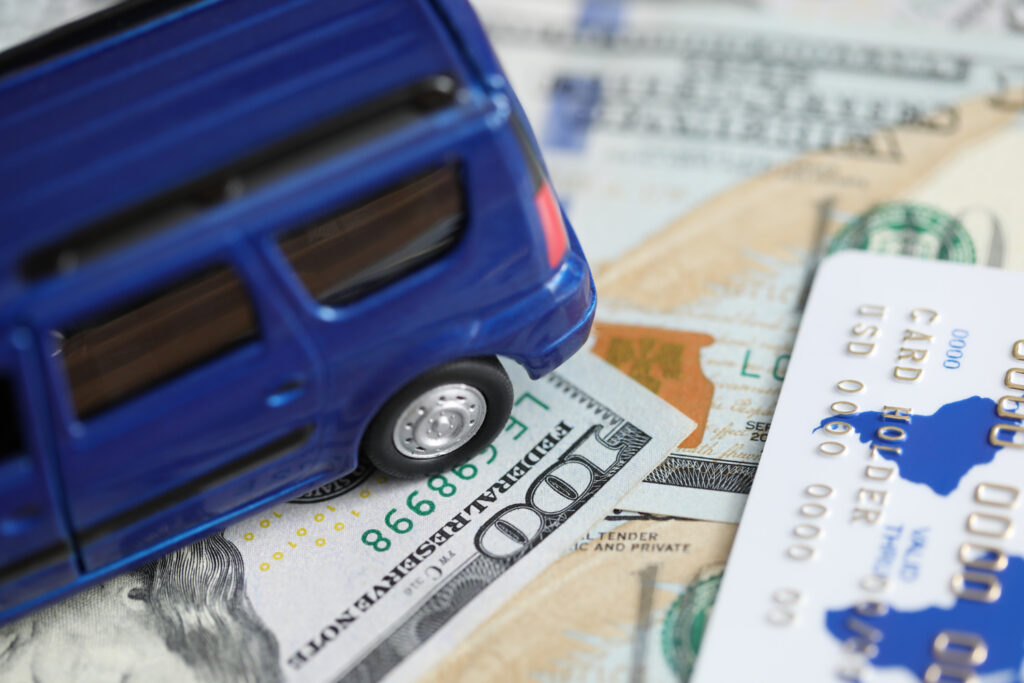
Financing Options for Buying an RV Park
Most buyers rely on financing to manage the RV park prices. Understanding your options is crucial for securing the best terms.
Traditional Bank Loans vs. SBA Loans
Bank loans require a 20–30% down payment and depend on creditworthiness. Lenders typically look for strong personal credit (680+ score), proven business experience, and a detailed business plan. They may require collateral and personal guarantees. Documentation includes:
- Personal and business tax returns (last 3 years)
- Business plan with revenue projections
- Credit report and debt-to-income ratio
- Personal financial statement
SBA loans, particularly the SBA 7(a) program, are more accessible to small business buyers. Requirements include:
- Credit score of 650+
- Down payment of 10–15%
- Clean business and personal financial history
- Business plan with 3–5 year projections
- Resumes and management experience
While SBA loans offer lower monthly payments and longer terms, expect a 60–90 day approval process due to detailed underwriting.
Private Investors and Seller Financing
If traditional loans aren’t accessible, private investors or seller financing may be options. Investors may provide capital in exchange for a share of profits. Seller financing, where the seller acts as the lender, allows for customized terms and greater flexibility. In many cases, seller financing can include:
- 10–20% down
- Interest rates between 5–8%
- Amortization over 5–15 years
Down Payment and Interest Rates
Down payments range from 10–30% depending on the loan type. In 2025, commercial loan interest rates typically fall between 6–9%, based on economic conditions and borrower credit.
Expected Return on Investment (ROI) and Profitability
Understanding potential ROI is vital when assessing the cost of buying an RV park. While returns vary, a well-managed RV park can be highly profitable.
Average Revenue and Profit Margins
In the RV park industry, a mid-sized park with 75–100 sites may be $200,000 to over $1 million in revenue generation annually. Site nightly rates can range from $35 to $100, depending on amenities and location. Well-run parks often reach 20–30% net profit margins, thanks to efficient operations and high occupancy.
How to Increase Profitability
To boost profits in the camping world:
- Add rental units like cabins or glamping tents (can raise nightly revenue 2–3x)
- Introduce premium amenities (pools, game rooms, event spaces)
- Host events or offer seasonal packages to increase off-peak bookings
- Optimize your digital presence with online booking and social media marketing
These improvements can enhance guest experience and increase site rates.
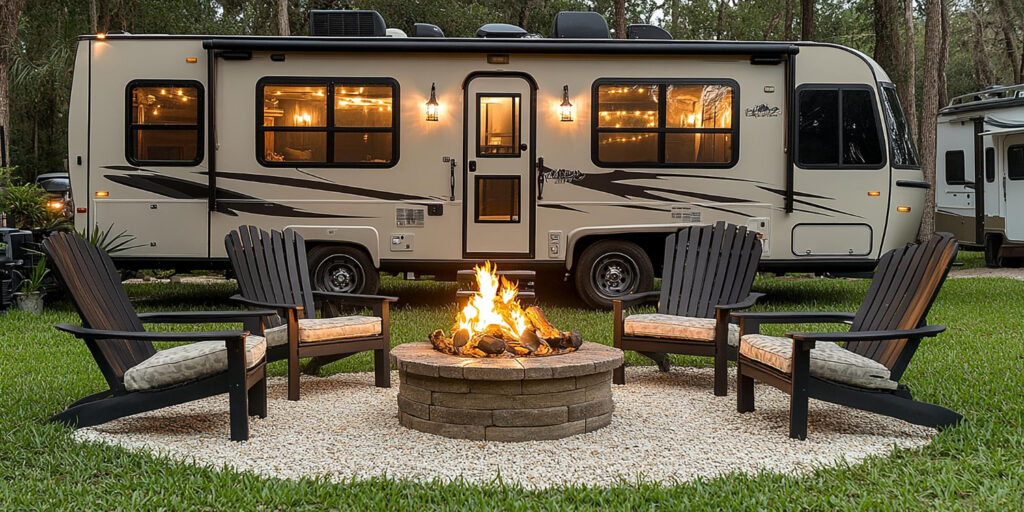
Is Buying an RV Park a Good Investment?
Yes—if done right. Investing in RV parks is good, but it can yield steady cash flow, tax benefits, and property appreciation. Conducting due diligence, planning for both upfront and operational expenses, and securing the right financing are key to success.
The RV industry continues to grow, offering long-term potential for investors who choose their property wisely. If you’re looking for expert guidance to evaluate and finance your RV park purchase, consider working with Parikh Financial. Their experience in campground lending and investment planning can help you structure your deal for long-term success.
Frequently Asked Questions
1. What permits and licenses are required to operate an RV park?
Permit requirements vary by location but typically include a business license, zoning and land use permits, septic and water permits, and sometimes health department approvals. You may also need stormwater permits, electrical certifications, and fire inspections. Contact your city or county planning department early in the process.
2. How do seasonal fluctuations impact RV park profitability?
Seasonality significantly affects revenue. Parks in colder climates often close or reduce operations in winter, leading to inconsistent cash flow. To counter this, owners can diversify offerings (e.g., winter cabin rentals), invest in year-round amenities, and use dynamic pricing during peak seasons to maximize revenue. Budgeting for slow months is essential.
3. What are the biggest challenges new RV park owners face?
Common issues include underestimating capital needs for renovations, managing guest expectations, and dealing with regulatory compliance. Many new owners also struggle with marketing, leading to lower-than-expected occupancy. Learning campground operations, staffing, and maintenance routines can be overwhelming without proper planning.
4. How do you determine a fair purchase price for an RV park?
Use a combination of valuation methods:
- Comparable sales in the area
- Cap rate analysis based on net operating income (NOI)
- Cost per site benchmarks ($20,000–$60,000 depending on amenities)
- Historical revenue and profit margins
Consider hiring a commercial appraiser or working with a broker who specializes in RV parks.
5. What are the common mistakes to avoid when buying an RV park?
Avoid skipping due diligence, such as ignoring environmental concerns, property taxes or zoning issues. Don’t assume the previous owner’s occupancy rates will carry over automatically. Avoid overleveraging with unrealistic revenue projections. Most importantly, have a detailed business plan and operating strategy in place before you close the deal.




